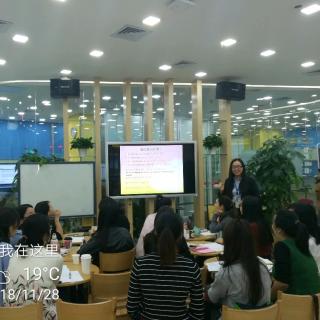
介绍:
【EM1-LP12 Food 】 Meten, Longhua Center, SZ, LT: Yoga Yu
(完成一个小目标,EM1录完,耶!)亲爱的听众朋友们大家好,这里是Yoga的荔枝电台FM799839,我是美联深圳龙华中心的LT Yoga,在这里为大家播讲新M1的LP12 Food的课程,欢迎您的收听,希望通过我们的节目,你能够对本课有更好的预习和复习,让我们开始学习吧!
Unit Goals of Unit12: 教学目标:
(1) Talk about your favorite foods;聊聊你最喜欢的食物。(2) Order and pay for food and drinks. 点餐和付费。
【Words and phrases: 单词和短语:】
1.课文里的单词和短语: food vendor食品小贩,sell v 售卖,Central Market ,
Kelantan 吉兰丹, Malaysia 马来西亚;delicious adj 美味的,eat v 吃,drink v 喝,need v 需要,favorite adj 最喜欢的,again adv再次,tonight 今晚,homemade adj自制的,a lot of 很多的;have a snack 吃零食, in an hour 一个小时之后, hungry, adj 饥饿的;healthy adj 健康的, a food truck 一辆食物车, lunchtime午餐时间, Calgary卡尔加里, Alberta亚伯达, Canada 加拿大,on the street街上的, here you go 就这样,干得好, order v/n点餐, menu n 菜单, item n 条款,物品, on the wall在墙上, stay at your desk 保留在桌子上, ask for请求, heaven n天堂 , Peruvian 秘鲁的, Peru秘鲁, Tokyo东京, Japan;
2.食物的短语: steak and fries 牛排和薯条,tea茶,cereal and fruit麦片和水果;
coffee咖啡,orange juice 橙汁,soup and salad with bread汤,沙拉和面包,pizza n披萨,chicken and rice 鸡肉和米饭,ice cream冰激凌,pasta n 意大利面,breakfast 早饭,lunch 中饭,dinner 晚餐,dessert n 甜点,Moroccan Mint tea 摩洛哥薄荷茶,meat 肉,milk 牛奶,soda苏打,water 水, chips薯条, cherry pie樱桃馅饼, chicken sandwich鸡肉三文治, taco墨西哥煎玉米卷, iced tea冰茶, Italian food意大利食物, chocolate, 巧克力。
3.表示频度的副词: always总是,usually通常,often 经常, sometimes有时候,
seldom/rarely极少地; never从不;once 1次,twice 2次,three times 3次, third time第三次!
4.量词和不可数名词:some rice一些米饭, some coffee一些咖啡, a bowl of rice一碗米
饭, a cup of coffee一杯咖啡, a slice of bread一块面包, a glass of water一杯水, a piece of cake一片蛋糕, a bag of chips一包薯片 , a bowl of pasta一碗意大利面, a bag of popcorn 一包爆米花, a piece/slice of pie 一块馅饼, a bowl of cereal一碗麦片, a cup of tea一杯茶, a slice/piece of pizza一片披萨, a glass of milk一杯牛奶, a bowl of soup一碗汤;
5.其他词汇:statement,陈述, notice And 注意“and”这个单词, guess the answers猜
测答案, complete the sentence完成句子;, study the chart学习表格, quantity expressions 量的表达, a general amount一般用度,用量, part of a whole amount整体用量的部分, writing the missing words,写出缺失的单词, compare your answers with a partner’s answers, 和你的拍挡对答案; write your own conversation写出你自己的对话;use it as a model把它作为一个模版。
2.【Sentences: 句子;】
(1)询问喜欢的食物的句子:
1)—What food do you like? 你喜欢什么食物?—I like pasta. 我喜欢意大利面。
2)—Do you like steak?你喜欢牛排吗? — No, I don’t, I don’t like meat. 不,我不爱吃肉。
3)—What do you often eat for breakfast? 你早餐经常吃什么?
—I usually eat cereal and fruit, orange juice for breakfast. 我通常吃麦片,水果,橙汁做早餐。
4) —Do you always eat dessert after dinner? 你经常在晚餐后吃甜点吗?
—Yes, I always eat fruit as dessert after dinner. 是的,我总是在饭后吃水果作为甜点。
(2) 询问别人吃什么的句子:
1) —What would you like to eat?你想吃什么?—I would like to eat some rice. 我想吃些米饭。
2) —What do you want to eat? 你想吃什么?—I want to eat a bowl of rice. 我想吃一碗米饭。
3) —Would you like to drink some coffee? 你想要喝一些咖啡吗?—Yes, I would. 是的,我想。
4) —Do you want to drink a cup of coffee? 你想喝一一杯咖啡吗?—No, I don’t want. I want to drink a glass of water. 不,我不想,我想喝一杯水。
(3) 询问个人情况的含be动词的句子: 我是秘鲁人。
陈述句中的肯定句—I am Peruvian. 陈述句中的否定句-I’m not Peruvian
一般疑问句—Are you Peruvian? 一般疑问句的回答—Yes, I am. / No, I’m not.
特殊疑问句—Where are you from? 特殊疑问句回答:—I am from Peru.
(4) 询问个人情况的含do动词的句子: 我住在东京;
陈述句中的肯定句—I live in Tokyo.陈述句中的否定句—I don’t live in Tokyo.
一般疑问句—Do you live in Tokyo?一般疑问句的回答—Yes, I do. / No, I do not.
特殊疑问句—Where do you live exactly? 特殊疑问句回答—I live in Tokyo.
(5) 特殊疑问句 询问个人情况的句子:
—Who do you live with?你跟谁住? —I live with my parents. 我和父母住。
—When is your birthday? 你的生日什么时候? —My birthday is on Jan. 10th, 1991. 我的生日是1991年的1月10日。
—What do you do on the weekend? 你周末干什么?
—I always see my good friends on the weekend. 我总在周末看朋友。
—Where is your hometown? 你的老家是哪里?—My hometown is Jiangsu. 我老家是江苏。
【Dialogues: 对话】关于点餐的对话;
Server: Who’s next? 谁是下一个?
Paula: Hi, I’d like the chicken sandwich, please. 你好,我想要一份鸡肉三文治。
Server:Anything else? 还有其它的吗?
Paula: Yeah, a bottle of water and a bag of chips. 是的,还要一杯水和一袋薯条。
Server:Ok, The chicken sandwich, a bottle of water and a bag of chips, that’s $6.50. 好的,鸡肉三文治,一瓶水和一袋薯条,一共6.5美元。
Paula: Here you go. 好的。给你。
Server:Thanks. And here’s your food. 谢谢,这是您的食物。
4.【Grammar】: be动词、助动词do的讲解
1、be动词的用法。be动词选用单数还是复数,要由主语来定,主语是单数,就用单数,反之用复数。
◆ 句中含有be动词时:
1)肯定句:主语+be + 其他; I am a teacher. 我是老师。She is 16 years old. 她16岁啦。
2)否定句:主语+ be + not + 其他; I am not a teacher. 我不是老师。She is not 16 years old. 她不是16岁。
3)一般疑问句: Be +主语+其他 +? Are you a teacher?你是老师吗? Is she 16 years old? 她16岁吗?
4)特殊疑问句: 疑问词(what / who / when / where) + be +主语 + 其他 +?What is your job?你做什么工作的? What is her age? 她多大年纪啊?
2、助动词的用法。英语句子按正常语序是“什么人或事物” + “做什么”,即,我们常说的“主语 + 谓语 + 其他”。
主语为I 或复数名词、代词时:
肯定句: I / We / They / The students + 动词原形 + 其他 + 。
We watch TV every night.我们每天看电视。
变否定: 主语+ don’t + 动词原形 + 其他 + 。
We don’t watch TV every night. 我们没有每天看电视。
一般疑问句: Do + 主语 + 动词原形 + 其他 + ?
Do you watch TV every night? 你们每天看电视吗?
Yes, we do. / No, we don’t.
特殊疑问句:疑问词 + do + 主语 + 动词原形 + 其他 + ?
How often do you watch TV? 你们隔多久看电视?
② 主语为单数名词或代词时:
肯定句: 主语 + 动词第三人称单数形式 + 其他 + 。
He watches TV every night. 他每天看电视。
否定句: 主语+ doesn’t+动词原形+其他+。
He doesn’t watch TV every night. 他不是每天都看电视。
一般疑问句:Does + 主语 + 动词原形 + 其他 + ?
Does he watch TV every night? 他每天看电视吗?
Yes, he does. / No, he doesn’t. 是的,他是。/ 不,他不是。
特殊疑问句:疑问词 + does + 主语 + 动词原形 + 其他 + ?
How often does he watch TV? 他隔多久看电视?
大家还在听

